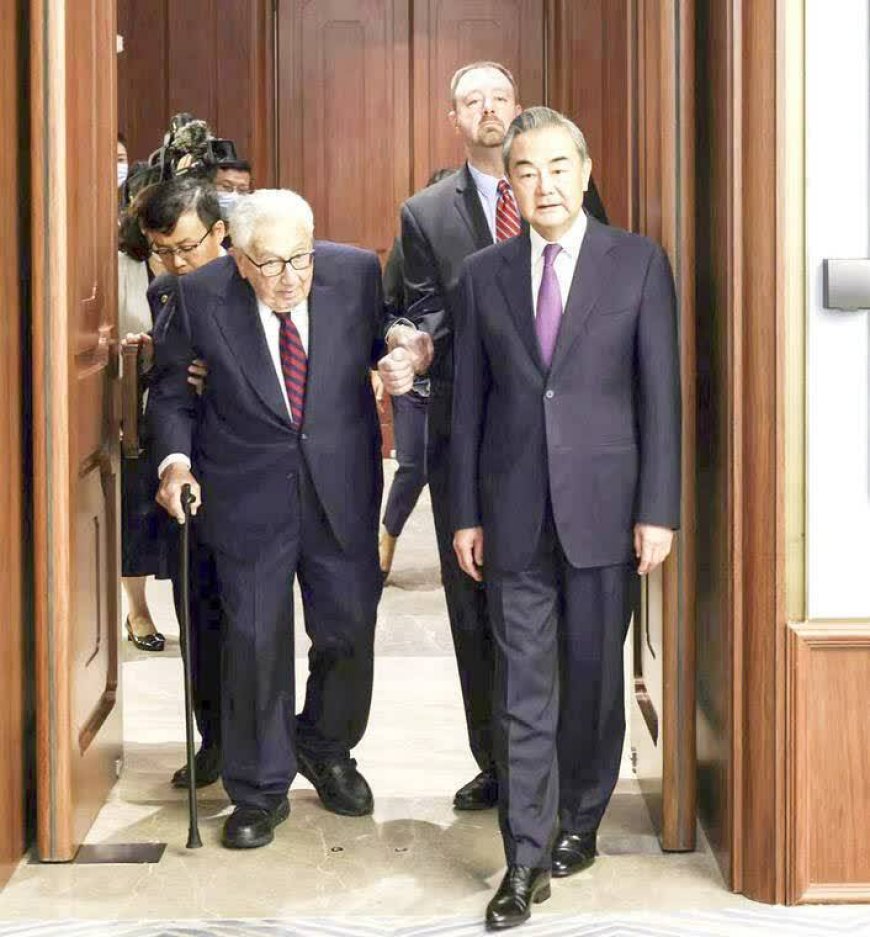Henry Kissinger's Diplomatic Visit to Beijing: Perspectives on the Evolving Dynamics of Sino-American Relations
Henry Kissinger's Diplomatic Visit to Beijing: Perspectives on the Evolving Dynamics of Sino-American Relations

Additionally, Kissinger held meetings with Wang Yi, a senior official responsible for China's foreign policy, and Li Shangfu, the country's defence minister. It is noteworthy that General Shangfu was subjected to sanctions by the US government in 2018 due to his involvement in the procurement of weapons from Russia, including Sukhoi 35 fighters and the S-400 anti-aircraft missile system.
This meeting between Kissinger and Shangfu carries significance, particularly in light of China's defence minister declining to meet with his US counterpart at a security conference in Singapore last June, citing US sanctions as the reason. By examining Kissinger's recent interviews and speeches, it becomes apparent that he harbours genuine concerns regarding the current trajectory of China-US relations. This may explain his unwavering determination to undertake the arduous journey to China, even at the age of 100. Nevertheless, the White House expressed regret over Kissinger's seemingly personal trip to China, as many current US officials face limitations in travelling to Beijing. Some commentators and media outlets speculate that Beijing strategically leverages the "old friend" card, while others argue that this move aligns with China's broader strategic objectives.
The United States intensified focus on regions proximate to China, such as Taiwan, Hong Kong, Tibet, and the South China Sea, as well as the tensions instigated by the White House in the Korean Peninsula, Australia, and the Philippines, can be interpreted as elements of China's containment strategy by the US.
To be more precise, former American diplomats such as Kissinger reached the consensus that the policies of both Democratic and Republican administrations regarding East Asia constitute a perilous game with severe implications for the United States.
The escalating tensions between Washington and Beijing will assume increasingly intricate dimensions, particularly as the United States finds itself embroiled in the costly war of attrition between Ukraine and Russia. Consequently, Kissinger's recent visit to Beijing should be regarded as a manifestation of the deep concerns among experts in American foreign policy regarding the imbalanced, costly, and perilous game orchestrated by the White House in East Asia. Both China and the United States now comprehend that neither side can eliminate the other, and any provocation could precipitate catastrophic ramifications in both the military and economic realms.
The current American administration, which has failed to reverse any of Trump's anti-Chinese policies and has even undertaken provocative actions against China over the past year, appears to have arrived at the realisation that the path embarked upon 52 years ago with the clandestine journey of this centenarian diplomat to Beijing was the correct approach.
Effective communication assumes paramount importance in China-US relations, necessitating mutual respect for each other's interests rather than attempting to impose political or economic hegemony. While an unwavering advocate for American interests, Kissinger comprehends that the United States cannot simply ignore the interests of other players in the international community. Kissinger's decades-long partnership with China has unequivocally demonstrated that mutual respect, coexistence, and mutually beneficial cooperation are viable and the sole path forward.













































